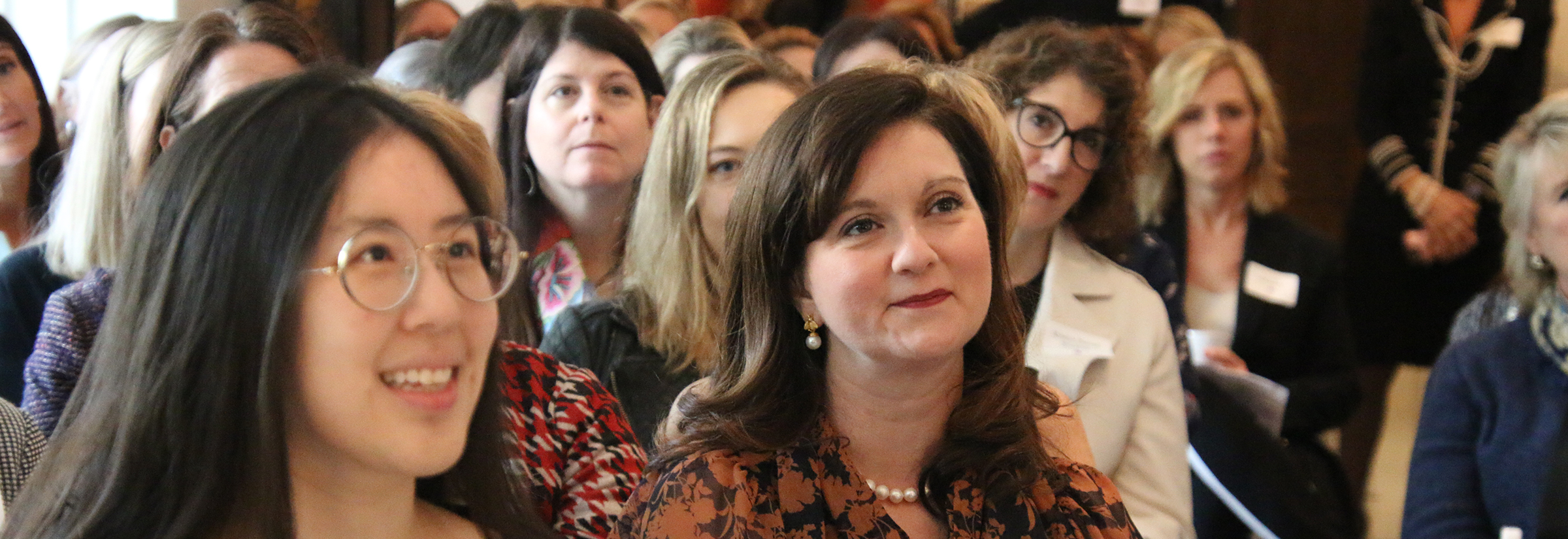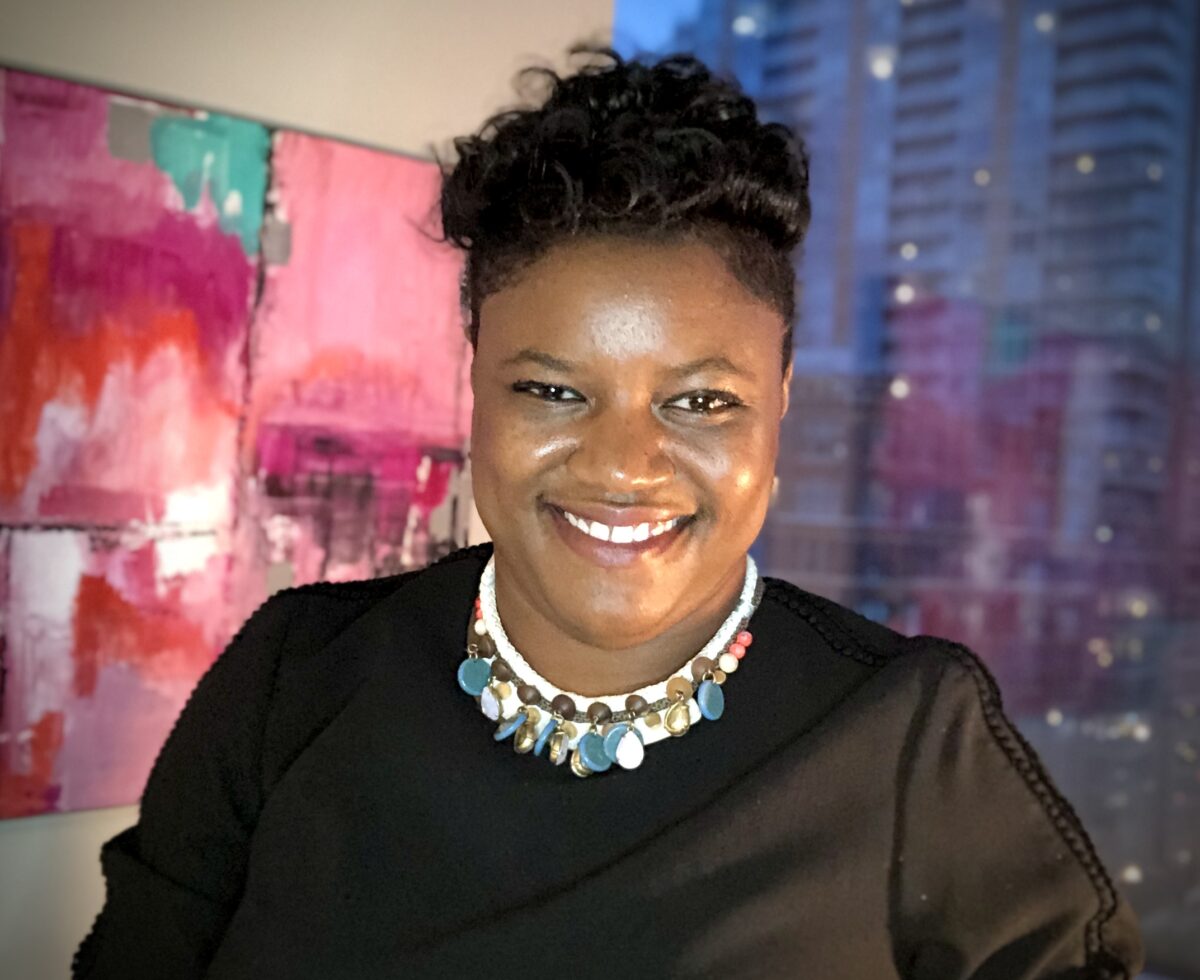
How to Make Sure Your Community is the Right Fit For You
We’ve spent the past decade advocating for women to find strong, faith-based community through which they can discover their God-given purpose. In 2019, Joi Freeman talked about some of her “must-haves” for community and what you can bring to the table to be a productive member of the group. We wanted to share her words of wisdom with you again!
Don’t have time to read this blog? Listen to it below!
When you hear “community,” what comes to mind?
Two words stand out— nucleus and network. Nucleus comes to mind because, for me, community is the starting point. It’s like a glue that holds me together and is at the core of who I am. My life and schedule was pretty hectic when I was getting my MBA, starting a business, mentoring, writing, going deeper in my walk with Christ, and trying to change the world, all while having somewhat of a social life— I could not have done all of that without my core community who cheered for me but also kept me grounded. And that relates to this idea of network.
The best analogy I can think of is the aspen tree which has interconnected roots between the tree system. It’s actually the colony of aspen trees that is considered a singular organism with these interconnected deep roots which unifies them. For me, that is my community. I am a deeply relational person. My love language is quality time and I’m discovering that I need words of affirmation to remain nourished. When I am depleted, it is my community who sends those nutrients back to me so that I can continue to grow into the woman and professional God designed me to be.
In your life, what are some “musts” for your community?
Trust, authenticity, acceptance, support, laughter, and high value on relationships are the character traits I deeply value in the people who are part of my root system. I also desperately need diversity in my community. I need people who are older and younger than me. I need people from different professions, and I have several people who do not live in or are not from the U.S.
It is also important for me to have strong men in my community who love and know me. As an outspoken strong-willed first-born girl who grew up with a single mom, I’ve had to learn how to have healthy and productive interactions with men. The men who are a part of my inner circle have taught and challenged me to grow in this area. From helping me learn how to navigate male supervisors, to how to demonstrate respect for soft-spoken male colleagues, to reinforcing that I am enough when I have questioned my decisions in relationships.
Many of us have segregated our communities, often without realizing. What are the potential dangers or shortcomings we are creating by keeping our Christian and non-Christian communities separate?
I actually think our segregation is even more fragmented than believer or not. We can sometimes make our particular church group our primary “in-group” and everyone else is maybe a part of our larger “community” but in some ways also an outsider. The danger of doing this is that we create echo chambers and in that we potentially stunt our growth because we surround ourselves with people who think and approach life almost identical to us.
The particular challenge for Christians is that having segregated groups was simply not Jesus’ style of engagement. Throughout his ministry, Jesus connected with people very different from him and he also interacted with groups which were quite diverse. We also run the risk of bifurcating our groups into “Christians I am close to and learn from” and “the world that I evangelize.” I try to avoid this approach to life because it limits me, and it keeps me from fully appreciating the richness of my community. I’ve come to fully appreciate the talent, perspective, passions, and even shortcomings of my friends from all backgrounds. In fact, some of my most valuable advice and life lessons have come from people not in my faith community but in my larger circle because we had shared interests, experiences, and backgrounds that allowed God to use them to speak truth into my life.
What advice would you give to someone beginning to build their community? What about someone whose community is failing them?
Think about who you are, and what it is that you need and want to thrive. For example, I have a big and extremely sensitive heart wrapped in the skin of an armadillo. I need people who will challenge my crazy, push me to be better, but also love me deeply and know when I need them to be gentle with me because I’m not always gentle with myself.
When you know what you need, I think you also have to be willing to be that for others. Cultivating a community is about reciprocal relationships. You must go after and embrace relationships knowing that they take time to develop and require intentionality. I think this same concept applies to people who feel that their current community may be failing them. Maybe at this stage of life, the community you have is not built to the specification of your current needs. That’s where going back to evaluate what you need, assess what you contribute, and then going after that is still an important task.
What are three actions or traits we should utilize or embody if we are a part of someone’s community?
I think being present, patient, invested, and also honest are important traits. Be honest not just in situations but also honest about your role. We, especially women, can often over commit to our relationships and then burn out. In the season of attending Kellogg and launching a company, I had to be very honest with my circles about what I had the capacity to give. While I was typically the friend who was always in your corner, I just did not have the mental, emotional, and physical capacity to be the Joi that everyone recognized.

Joi Freeman is the Founder & CEO of Remnant Strategy, a consultancy working at the intersection of culture and commerce to help legacy and emerging businesses navigate the ever-evolving global terrain. As a strategist, youth culture enthusiast, and advocate for voices of vulnerable populations, Joi is regarded as a brand “fixer” who connects the dots between corporate strategy, brand marketing, and social impact.
In this last year, Freeman led growth strategy engagements across sectors including arts education, teletherapy, and women/youth economic development. Before founding Remnant Strategy, she developed brand strategies for a host of businesses including The Boston Consulting Group, the YMCA, Claire’s & Icing stores, the Girl Scouts, MoneyGram International, HOPE Worldwide, McDonald’s, and Burger King.
As a frequent presenter on issues impacting Gen Zs globally and specifically youth of color, Freeman is deeply committed to creating successful pathways for the next and most diverse generation to maximize their full potential. She was selected as one of the Chicago Council on Global Affairs, Class of 2021 Emerging Leaders, and serves on several non-profit boards including alt_ Chicago, GirlForward, and Together Chicago.
Freeman has an MBA from Northwestern’s Kellogg School of Management and a Bachelor of Arts in Literature of the African Diaspora and Creative Writing from the University of Maryland, College Park.